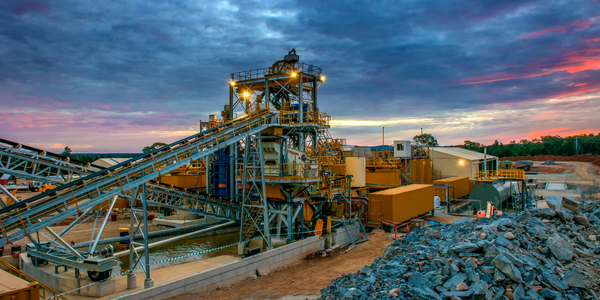Download PDF
Australian insurance provider, CCI, achieves seamless migration and consistent end user experience with AppSense
Technology Category
- Application Infrastructure & Middleware - Data Exchange & Integration
- Functional Applications - Remote Monitoring & Control Systems
Applicable Functions
- Business Operation
- Facility Management
Use Cases
- Remote Asset Management
- Predictive Maintenance
- Remote Control
Services
- System Integration
- Training
The Challenge
CCI has approximately 260 employees working across the company’s offices in Brisbane, Adelaide, Melbourne, Sydney and Perth. With many employees regularly working from home and travelling between CCI’s offices, the company’s IT department struggled to deliver a consistent desktop experience across the different locations and devices. The user base also experienced lengthy Windows logon times, with user profiles generally taking up to 15 minutes to load, which affected the productivity employees. Commenting on the problem, Trevor Walter, Team Leader of Technology Services at CCI, said: “The slow logon times, which could range anywhere from between 10 to 15 minutes and, on occasion, up to 45 minutes due to profiling issues with the previous solution, were a source of frustration for employees as well as a headache for our IT department. Simply put, every minute spent waiting by an employee to gain access to their computer was another minute lost in productivity. We were also struggling to deliver a consistent and personalized user experience for our staff, which we needed to change.” In addition, the organization was due to migrate from Windows XP to Windows 7 and wanted to minimize user disruption and the impact of a migration project on IT resources.
About The Customer
Catholic Church Insurance (CCI) is owned by The Catholic Dioceses and Religious Institutes of Australia, and, as a church-owned business, it aims to look beyond profits and focus on people. CCI is committed to ethically and compassionately supporting its members in times of need. The organization is one of the oldest insurance companies in Australia and first opened for business in 1911, providing fire insurance for Church properties. Since then it has grown into a diversified general insurance and financial services provider working with Church institutions throughout Australia.
The Solution
CCI approached AppSense to support its Windows 7 migration and Citrix upgrade and to deliver an improved and consistent end user experience. AppSense’s abilities to not only support a seamless migration, but also help with profile management, policy management and logon times led to the purchase of AppSense’s Environment Manager. AppSense Environment Manager enables IT to deliver a personalized desktop experience to any desktop, physical or virtual - on any Windows OS, regardless of how the desktop and applications are delivered. The solution provides precise user control with a powerful user-based policy and personalization engine that delivers user and application settings on-demand to any desktop, on any device based on the context of the user, location, time, device and many other granular options. When disconnected, user policy and personalization settings persist off-line, then ‘sync’ with the corporate network next time they reconnect. Not only does this provide centralized user management, but it also enables user personas to be dynamically applied to any desktop environment providing a consistent, personalized experience for the employee. Partnering with AppSense Trevor was pleased with how easy it was to work AppSense: “The AppSense deployment was a simple, three-stage process, and I was impressed with how smoothly and quickly everything ran.” CCI began the implementation and within a few weeks, had migrated all of the organization’s SOE polices over to AppSense Environment Manager, allowing the IT team to better administer policies and users. The IT team rolled out individual profile capturing in preparation for the upcoming migration. When the migration from Windows XP to Windows 7 was complete, the personalization and policy settings were delivered to the new environment, ensuring minimal user disruption and eliminating the need to reconfigure the desktop.
Operational Impact
Quantitative Benefit
Related Case Studies.

Case Study
Remote Monitoring & Predictive Maintenance App for a Solar Energy System
The maintenance & tracking of various modules was an overhead for the customer due to the huge labor costs involved. Being an advanced solar solutions provider, they wanted to ensure early detection of issues and provide the best-in-class customer experience. Hence they wanted to automate the whole process.
.png)
Case Study
Improving Vending Machine Profitability with the Internet of Things (IoT)
The vending industry is undergoing a sea change, taking advantage of new technologies to go beyond just delivering snacks to creating a new retail location. Intelligent vending machines can be found in many public locations as well as company facilities, selling different types of goods and services, including even computer accessories, gold bars, tickets, and office supplies. With increasing sophistication, they may also provide time- and location-based data pertaining to sales, inventory, and customer preferences. But at the end of the day, vending machine operators know greater profitability is driven by higher sales and lower operating costs.

Case Study
Goldcorp: Internet of Things Enables the Mine of the Future
Goldcorp is committed to responsible mining practices and maintaining maximum safety for its workers. At the same time, the firm is constantly exploring ways to improve the efficiency of its operations, extend the life of its assets, and control costs. Goldcorp needed technology that can maximize production efficiency by tracking all mining operations, keep employees safe with remote operations and monitoring of hazardous work areas and control production costs through better asset and site management.

Case Study
Predictive Maintenance for Industrial Chillers
For global leaders in the industrial chiller manufacturing, reliability of the entire production process is of the utmost importance. Chillers are refrigeration systems that produce ice water to provide cooling for a process or industrial application. One of those leaders sought a way to respond to asset performance issues, even before they occur. The intelligence to guarantee maximum reliability of cooling devices is embedded (pre-alarming). A pre-alarming phase means that the cooling device still works, but symptoms may appear, telling manufacturers that a failure is likely to occur in the near future. Chillers who are not internet connected at that moment, provide little insight in this pre-alarming phase.






